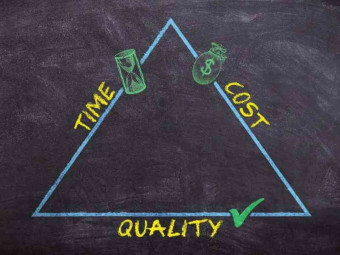Gestalt Psychotherapy
Tags: Psychotherapy
Become a Psychotherapist or Counsellor, open new business or work from home, get Psychology & therapy knowledge
Last updated 2022-01-10 | 4.5
- Use Gestalt approach in your therapy work- Have knowledge of Gestalt approach and use it on yourself
- Know how to use the famous 'Empty Chair Technique'
What you'll learn
* Requirements
* Your interest in psychotherapy* psychology or counselling
* Your knowledge of using Udemy online
Description
Would you like to learn the famous Gestalt approach and use it in your work? Are you interested in becoming a Gestalt therapist?
Are you just expanding your knowledge on different therapeutic approaches?
In any case, you are in the right place!
In this course you will take 29 informative lectures where you will learn for example:
Several Gestalt techniques such as the "Empty Chair Technique" or "Repetition & Exaggeration"
The importance and use of experiments in therapy sessions
Working with couples and groups
Using "Mindfulness" approach in sessions
Helping to complete an "unfinished business"
Using the Theory of Change in therapy
and much more!
Are you ready to start the course?
Then see you in my class! ;)
P.S. This course is now fully accredited by the International Association of Therapists (IAOTH).
P.P.S. At the end of the course you will see the instructions on how to obtain your certificate of completion
Who this course is for:
- Anyone who is interested in Gestalt Therapy approach
- Anyone who wants to become a coach, counsellor, therapist
- Anyone who wants to use their certification from this course for work or further study!
Course content
7 sections • 33 lectures
About the Instructor Preview 02:46
This video is about the instructor, her qualifications and the reasons for teaching at Udemy
About the Course Preview 04:38
This video is another part of introduction - introducing you to the actual course: what to expect, how to take it and how to enjoy it!
What is Psychotherapy Preview 10:10
In this lecture you will learn what 'psychotherapy' is in general, 'who' is it for, what benefits it can bring to the client, and what is the difference between ‘counselling’ and ‘psychotherapy’.
At the start of the lecture, we'll have a look at some definitions of ‘psychotherapy’ so that we could understand what ‘psychotherapy’ is and what it definitely is not. And next we'll proceed to the discussion of 'benefits' of psychotherapy to their typical client.
What is Gestalt Therapy Preview 08:24
This lecture we'll start with the definition of Gestalt Therapy, after which we will be discussing the main principles of this approach such as 'acceptance', focusing on the 'here and now' and so on.
Also, we will be discussing that for example, Gestalt therapy is different from many other forms of therapy in several ways, such as its creative and intuitive approach whilst remaining directive and action-oriented. The client would be actively encouraged to participate and even enact for their own benefits during the sessions!
The origins of Gestalt Approach Preview 12:07
In this video lecture we’ll have a look at the origins of Gestalt therapy, the developers of this approach, when and why it was created so that you were aware of the bigger picture. So it’s not just about how to use it and with what kind of psychological problems, but also why it has been created in the first place and where it was successfully used already.
Finally, we will discuss the 3 main principles of Gestalt therapy that are referred to as its 'philosophies' such as Field Therapy, Phenomenology and Dialogue (or dialogical relationship which will be looking at further during the course)
Psychoanalysis & Gestalt approach Preview 09:13
Throughout this course we’ve been saying that Fritz Perls, the creator of the gestalt therapy, was trained as psychoanalyst. Fritz and Laura Perls developed Gestalt therapy as an alternative to psychoanalysis because Fritz felt that there are certain things are missing within psychoanalysis that gestalt therapy could fulfil. As a result Gestal therapy was a creation that is very different from psychonalysis and here we will see in which ways.
Forms of Psychotherapy Preview 11:13
In this lecture we will have a look at various forms of therapy that are offered nowadays to those seeking therapy. This includes for example, 'telephone-' or 'online' therapy.
Additionally, we'll have a look whether Gestalt therapy can be offered in a different form rather than the typical 'face-to-face' office-based approach
Therapeutic Relationship in Gestalt therapy Preview 10:58
What is the difference between 'therapeutic' relationship and any other type of relationship (such as 'friendship')? Why can't we have counselling with our friends and family members? When does 'therapeutic relationship' really start? All of this and much more we will be discussing in this lecture!
The ‘Self’ in Gestalt therapy Preview 08:47
In this module we will be looking at various principles within Gestalt therapy that are based on philosophical truths and beliefs, and which guide the therapist in using this approach with their client. The first such principle is called ‘self’, which is a very important concept that every therapist working with, which is what needs to be understood well. The concept of ‘Self’ can give many answers to the therapist that are essential in providing therapy with the client. Let's have a look at its definition first of all.
Gestalt ‘Present’ Awareness Preview 09:35
In this lecture we will be discussing the next important concept in gestalt therapy - the 'present' or the focus on the 'awareness', or what is also known as focusing on ‘here and now’.
Focusing on the present during the therapeutic session is a fundamental principle of gestalt approach. It is believed that connecting with the present and fully immersing yourself in it, can bring the sense of full acceptance of whatever is happening to the person, the development and growth which is a natural aim of any living organism. So let's have a look at the benefits of adopting this approach here in this lecture.
The concept of ‘Respect’ Preview 05:34
In gestalt therapy, the concept of ‘respect’ takes an important place amongst other concepts. As in Carl Roger’s humanistic approach we would hear about full ‘acceptance’ and ‘unconditional positive regard’, in gestalt therapy - it is the concept of ‘respect’ that becomes clear and evident.
So offering full respect to the client means helping them to get into the therapeutic process with more ease, when the client becomes comfortable. Are there any other benefits that 'respect' gives to the client? Let's discuss it here!
The concept of 'Social Responsibility' Preview 07:10
When you are studying gestalt approach you would come across another concept and of ‘responsibility’. Responsibility towards oneself and towards others. Here we are discussing ‘social responsibility’ which means responsibility towards other people, other living beings, and the world in general, but at the same time not forgetting own value from an assertive standpoint.
The Concept of 'Relationship' in Gestalt Preview 08:14
In this lecture we will be discussing the concept of relationships within gestalt therapy, what position the take place and in what way they are considered to be important to the client’s healing process. So let's have a look at how 'relationships' are viewed in Gestalt therapy.
Phenomenological Method Preview 06:29
When Gestalt therapy was created, it was influenced by various theories including philosophy, theology, perception and learning.
So what is phenomenology? Let's discuss it here!
Dialogical Relationship Preview 06:12
In one of our previous lectures we’ve been talking about relationships and how they are viewed in gestalt therapy. We’ve said that relationships help the individual understand and learn various aspects of self, and that only though become fully-functional or ‘whole and complete’ we can start having truly positive experiences and satisfying relationships with others. This is where we let the other person to be what they are and where we don’t demand from them to change and adapt to our viewpoints.
So let’s have a look at the concepts of ‘dialogue’ and ‘dialogical relationship’.
Field Theoretical strategies Preview 06:49
In this lecture we'll have a look at various definitions of 'field' and 'field theoretical strategies', what they are and what they represent. A human behaviour cannot be studied without taking account his/her environment, and this is the key concept in this lecture.
Experimental Freedom Preview 05:51
Gestalt therapy is different from many other types of therapy in the way that it’s not just using therapeutic talk, but it also involves experiments. These experiments have their own function of letting the client to have experiences and not just talk. So what is 'experimental freedom'? What 'experiments' are we talking about here?
The Theory of Change Preview 08:34
In this lecture we will be discussing one interesting concept that also underpins gestalt therapy, and the full name of this concept is ‘paradoxical theory of change’.
In this lecture we will be discussing the concept of 'change' and when 'change' can actually happen.
The concept of 'Mindfulness' Preview 11:10
In this lecture we’ll talk about ‘mindfulness’, which became well known and well practiced in psychotherapy in the last 10-15 years.
As we’ve been discussing throughout this course, gestalt therapy has its similarities to the approach of mindfulness, and nowadays many therapists practice both - gestalt therapy and mindfulness in their practice. Both of these approaches compliment each other because both of them teach being ‘present’, being in the ‘here and now’. Oftentimes, gestalt approach is referred to as mindfulness-based approach because they share similar if not the same concepts.
Exercise and Experiments Preview 04:54
Throughout this course we’ve been discussing that gestalt therapy is unique in a sense that it involves so much more than just ‘talking therapy’. During gestalt therapy the client becomes a participant of various experiments where they take an active role, which makes this therapy highly effective.
The Empty Chair Technique Preview 08:47
Hello and welcome to the next lecture of this course where we will be discussing the first and very common gestalt technique that you need to know - 'The Empty Chair Technique'.
This technique is used by virtually every gestalt therapist because it is simple yet very effective.
When would a gestalt therapist use the empty chair technique?
What does this technique give to the client? Let's discuss this here in this video.
Discussing ‘dreams’ (Dream Work) Preview 09:57
You might have heard of 'dream analysis' and 'dream interpretation' before. Perhaps you even attempted to interpret your own dreams and find their significance through understanding the symbolic images that you see and interact with in your dreams. I find this topic very interesting and I’m eager to share with you how this technique is used in gestalt therapy. Perhaps you will find a better way to interpret your own dreams and the dreams of your clients.
Exaggeration & Repetition Preview 05:20
In this lecture we will be discussing yet another interesting technique in gestalt therapy which is called exaggeration and repetition where repetition is a from of exaggeration.
So what is it and why is it useful?
Guided Imagery and Fantasy Preview 11:26
Guided imagery and fantasy are techniques that are used often in gestalt therapy, though you can also know about them from other forms of therapy too. Cognitive Behavioural Therapy & Dialectic Behaviour Therapy for example can use guided imagery as a part of their therapy treatment. So what exactly is 'guided imagery' and what it involves? Let's discuss it here!
Suppressive Techniques Preview 09:11
Suppression within a therapy related context means that certain elements for example, undesirable emotions get eliminated or minimised through our conscious efforts. Why would we try to minimise certain thoughts, feelings or emotions, or even eliminate them entirely? We do this because it would help us to regulate our mood, reduce distress, feeling more in control. So let's discuss the benefits of 'suppression' and 'suppressive techniques' here in this video.
Working with ‘Unfinished Business’ Preview 08:34
What is ‘unfinished business’? What do you think? Is it something like a conversation we had with someone in the past and never got to finish it? So let's discuss what is 'unfinished business' and how would you help the client to 'complete' it even they cannot have an actual dialogue with the person from their 'past'
Working with Couples Preview 09:30
'Couples therap'y is concerned with relationships where two partners are trying resolve some issues or some conflict, come to some agreement, improve their relationship, find new viewpoints that they can share, or to come to conclusions if for example relationship is broken down irreversibly. So in this lecture, we will be discussing what is 'couple therapy' and its aims, the reasons for attending 'couple therapy', and how Gestalt approach is used in 'couples therapy'
Working with Groups Preview 05:50
So what is the difference between individual and group therapy? What the client can get in terms of benefits if he or she has a courage to come to a therapy group? Perhaps individual group can give an undivided attention to the client, but wha a group therapy can give them instead? Let's answer all these questions here in this lecture!
The Strengths of Gestalt approach Preview 04:02
In this lecture we will be discussing the 'pros' of Gestalt therapy, and particularly in which cases it seems to be the most beneficial.
Critiques & Limitations Preview 05:00
In every kind of therapy, in every approach you can find some limitations and even existing critics made by other researchers and therapists. So what can we say about gestalt therapy? Does it have its limitations? Can it be criticised or it simply suits everyone?
Thank You and Good Bye! Preview 02:14
In this video your tutor is saying her 'thank you and good bye' message to you! :)
'Gestalt Psychotherapy' - Final Test
'Gestalt Psychotherapy' - Final Test
Complete the test to your best ability. You can re-take the test as many times as you need.
Chose the answer that is most accurate or complete in relation to the question asked.
Good luck!
After you complete the test you qualify for your well-deserved certificates!








 This course includes:
This course includes:













